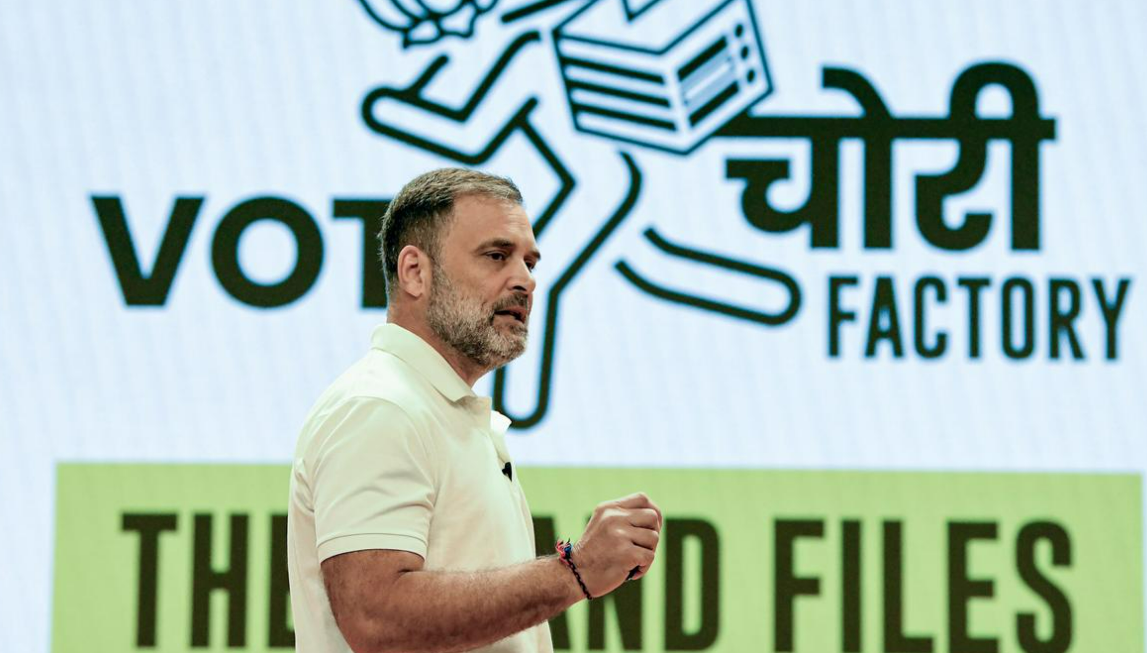
Rahul Gandhi has made unemployment the centerpiece of his latest political attack, declaring it the “biggest problem” confronting India’s youth. In a fiery speech, he went further to link joblessness with what he described as “vote chori,” claiming that the erosion of democratic processes prevents genuine solutions to the crisis.
Job Crisis Under the Spotlight
India’s employment situation has been a matter of concern for years. Despite rapid GDP growth, job creation has lagged, particularly in labour-intensive industries such as textiles, construction, and small-scale manufacturing. Gandhi argued that this disconnect between economic growth and job opportunities has left millions of young Indians feeling alienated.
The Congress leader cited stories of graduates working as delivery workers, engineers driving auto-rickshaws, and skilled youth unable to find stable employment. According to him, such examples show how the government has failed to harness the nation’s demographic dividend.
Accusations of Policy Failure
Gandhi accused the government of relying on publicity-driven campaigns rather than structural reforms. He criticized Make in India, Startup India, and Skill India for being “empty slogans” that have not translated into meaningful employment opportunities.
He further claimed that key policy decisions such as demonetisation and the GST rollout crippled small businesses, wiping out jobs in the informal sector, which employs over 80% of India’s workforce.
Connecting Jobs With Vote Theft
Going beyond economic criticism, Gandhi linked unemployment to the political system itself. He alleged that electoral manipulation and misuse of institutions have created an environment where leaders are not accountable to the people. “When the vote is stolen, jobs are stolen too,” he said, emphasizing that a government dependent on manipulation has no incentive to deliver real employment opportunities.
Government’s Defense
The ruling party has countered Gandhi’s allegations by highlighting initiatives such as infrastructure investments, PLI schemes in electronics and manufacturing, and digital innovation hubs. They argue that millions of jobs have been created, citing rising EPFO enrollments and entrepreneurship opportunities.
Government spokespersons have also dismissed Gandhi’s “vote chori” claims, saying India’s elections are globally recognized for their fairness and that such accusations undermine democratic institutions.
Youth Voices
On the ground, young Indians are increasingly vocal about unemployment. Many say their degrees are failing to fetch jobs, while those who are employed often work in precarious, low-paying roles. Social media has amplified these concerns, with hashtags and campaigns drawing attention to delayed government recruitments, long waiting lists for exams, and lack of job security.
Opposition Strategy
By tying unemployment to broader democratic erosion, Gandhi is reframing the issue not just as an economic challenge but as a political one. This dual framing allows the Congress to attack the government on governance as well as livelihood grounds, strengthening its campaign narrative ahead of upcoming elections.
Experts Weigh In
Economists argue that India needs deep structural reforms to address joblessness. These include boosting labour-intensive manufacturing, reforming labour laws, expanding vocational training, and supporting MSMEs. Without such changes, even high GDP growth may fail to translate into mass employment.
Public Mood
For many citizens, unemployment is emerging as a priority issue. Surveys consistently show jobs and inflation as top voter concerns. Gandhi’s attempt to link these concerns to democratic integrity is seen as a bid to capture youth anger and redirect it into political momentum.
